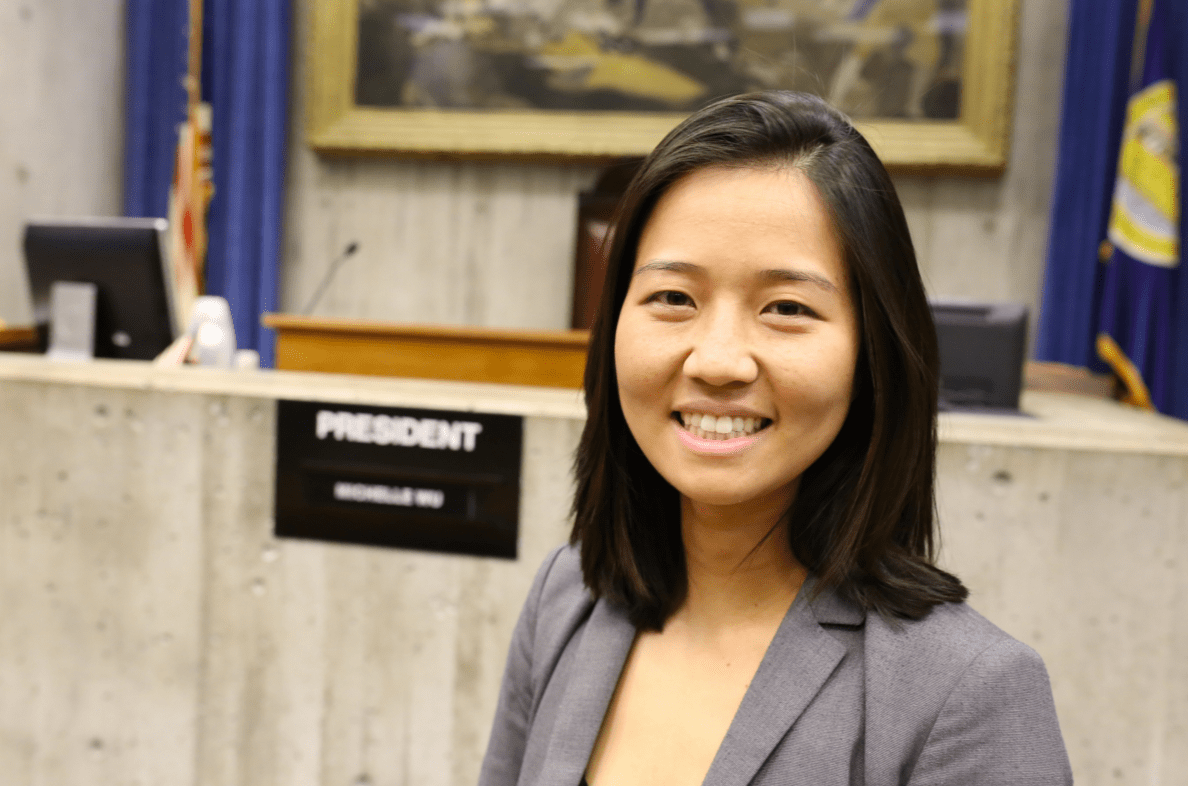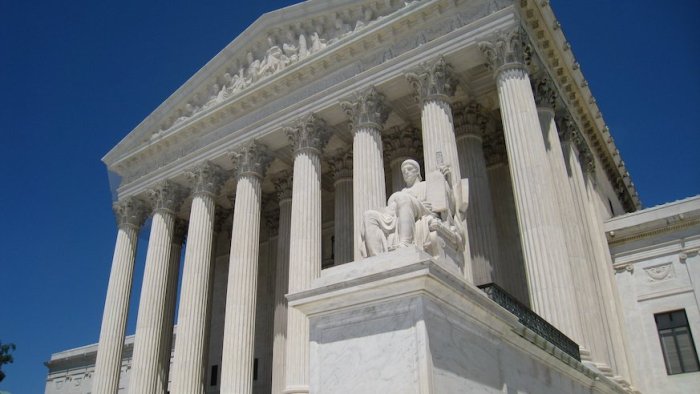It’s been a big week for Michelle Wu, the 30-year-old from Roslindale elected to the president’s seat on Boston’s City Council on Monday. After being elected by her colleagues, the councilor since 2013 was sworn in to great fanfare in a ceremony helmed by Mayor Marty Walsh and attended by U.S. Sen. Elizabeth Warren. Warren, who taught Wu — an attorney and new mom originally from Chicago — at Harvard, called her “a woman who gets out and does the hard work that needs to be done.”
Wu, the first woman of color to lead the 13-member council, will serve as president for two years.
“It was a beautiful and long inauguration day,” Wu told Metro in an interview on Wednesday. “But come Tuesday we’re back to work and are fully back to the grind.”
Taking a step away from a packed schedule, Wu took a few questions with us about her new job and the years ahead.
Much has been made about you being the first woman of color, and first Asian-American in the role of council president. What does that distinction mean to you?
I’m always very aware and very grateful for all the people who have come before me and opened up so many doors. Think about Sam Yoon who was the first Asian-American on the council, about Ayanna Pressley, the first woman of color elected to the council. As much as people are noticing that aspect of it, I want the focus to be on our work, our productivity and the advocacy that happens for all the people of different backgrounds, of every race, of every income level in every neighborhood. Having a representative government leads to better policy, but the key is really getting residents from every background engaged in government. RELATED: Boston City Council gave itself $12,000 raise
Income inequality, an opioid epidemic, rising rents. What can a city council president do to solve these problems?
My number one focus is going to be transparency. We need to do a better job of letting people know what’s happening so they can participate. We’re revamping the council website to make it easier to track all of our work online. We’ll be hosting town halls focused on the issues in the neighborhoods hosted by each committee chair. On policy issues, we have some ambitious agendas and I think people will see after two years that the City Council has accomplished a lot in those areas.
Considering the low turnout this year, is the council accountable to the city?
If we can do a better job of letting people know when our meetings and hearings are, what’s happening in terms of what we’re working on so they can suggest additions or changes, that’s how we keep people engaged throughout the year. Hopefully because of that we’ll see greater interest in participating. President Obama this week announced executive actions on gun control. Are orders given in Washington going to impact the streets of Boston?
Our law enforcement has set the standard for community policing and really using statistics to understand where we should be putting our resources.
I think it always helps when there’s greater awareness and a great urgency around an issue. Locally, I think our police department has been doing a lot and will continue to do a lot.
RELATED: City Council bans synthetic marijuana sales Are lawmakers wrong to exempt Boston from local control of liquor licenses?
I don’t know why there’s an exemption. Boston should have local control of our liquor licenses, just as many of our cities and towns do – this is an issue that’s been championed by Councilor Ayanna Pressley. Because those licenses are so closely tied to economic development, it’s important that the city be able to have control of it. “No New Taxes” is what we’re hearing from the Governor’s Office and at the State House. What comes to your mind when you hear that refrain?
It’s important that we recognize the need for programming and the need for services. At the city level, we see state aid for education and for local aid being cut year after year after year, and it falls to the municipalities to come up with the funding to plug those holes. When state aid goes down year after year, that funding is what keeps our schools open and what keeps able to provide for the residents in most need across Boston. We take very seriously our role in watching over taxpayer dollars, but it’s also important to remember who the faces are behind policy – that it’s not just numbers.
RELATED: City Council approves BYOB for Boston restaurants
There are many ways to get from Roslindale to City Hall. What’s your commute like?
When possible I try to carpool with my husband. It’s usually about a 45-minute drive.
Often, that’s not possible, so I walk with a stroller to Roslindale Square and catch a bus ride to the Orange Line to State Street, and I walk from there over to City Hall. I now know where most of the elevators are on the T because I’m always with a stroller. We’ve also tried taking the Commuter Rail, but Roslindale is in Zone 1, so we have to pay over $5 rather than just the $2. It makes it more expensive.
What don’t we know about you?
I love hiking, I love cooking, I love music — particularly classical music. I still have a piano and play it often. We have a digital Roland right now. One day, we’ll be able to afford something else.
Metro Q+A: Michelle Wu, Boston’s newest City Council president

Nicolaus Czarnecki/Metro













